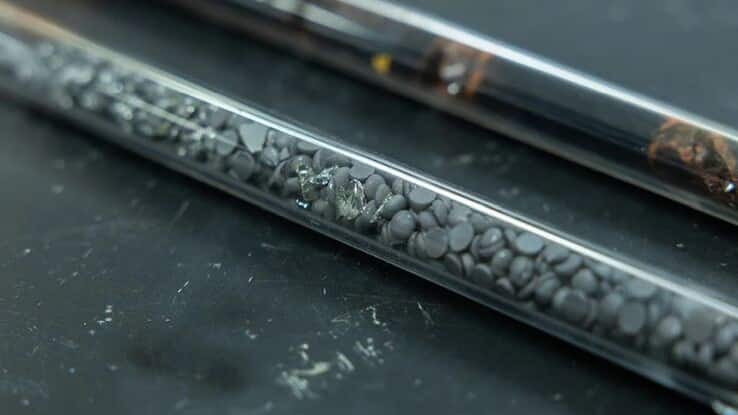Was that a long read? I’ll make it easier…
What is the story
A team of scientists led by engineer Myungkoo Kang from Alfred University in the USA has succeeded in developing a type of glass that can repair itself after being damaged by gamma radiation.
This innovative material, known as chalcogenide glass, has been observed to gradually regain its structural integrity at room temperature without external influence.
The discovery could have significant implications for use in space environments and radioactive facilities.
Chalcogenide glass: A promising alternative to crystalline solutions
Chalcogenide glasses containing elements such as sulfur, selenium, tellurium or polonium are gaining attention due to their unique optical transparency, which is similar to crystals such as germanium.
Physicist Kathleen Richardson of the University of Central Florida explains: “These glasses are finding increasing application in systems where the community is looking for alternatives to some of the crystalline solutions that have been used to date.”
Unique interaction with light and infrared sensors
Chalcogenide glasses interact with light in unique ways, making them particularly useful for optical devices and infrared sensing.
Kang’s team developed such a glass for satellite circuits, using precise proportions of sulfur, germanium and antimony.
“These glasses exclude oxygen, and that makes them special for the infrared range,” says Richardson.
Resistance to gamma radiation tested
To test the resilience of chalcogenide glass, it was exposed to gamma radiation – a common stress factor in space environments.
The researchers used cobalt-60-powered irradiators to expose their samples to this high-energy form of light, which created microscopic defects in the glass by distorting weak atomic bonds.
However, when stored at room temperature for 30 days, the glass showed its self-healing properties and recovered from these defects.
Self-healing glass could be used as a radiation sensor
The self-healing property of chalcogenide glass opens up exciting possibilities for its future applications.
One possible use would be as a long-lasting, reversible radiation sensor in extreme environments.
The research team is optimistic about further developing this glass and exploring other glasses with similar self-healing capabilities.
The goal of Kang’s new research group is to develop novel radiation-induced ceramics as well as in-situ microstructure and optical measurement methods to enable the realization of ultrafast, lightweight optical platforms.

